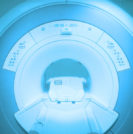Artificial Intelligence in Medicine: AI Brings to Light Signature Writing of the Dead Sea Scrolls

What do the Dead Sea Scrolls have in common with diagnosing disease? This blog takes a detour from Artificial Intelligence (AI) in medicine to a different realm before circling back to clinical use: how many individual scribes contributed to the Dead Sea Scrolls? The Dead Sea Scrolls In 1946, a treasure trove of ancient Jewish keep reading










